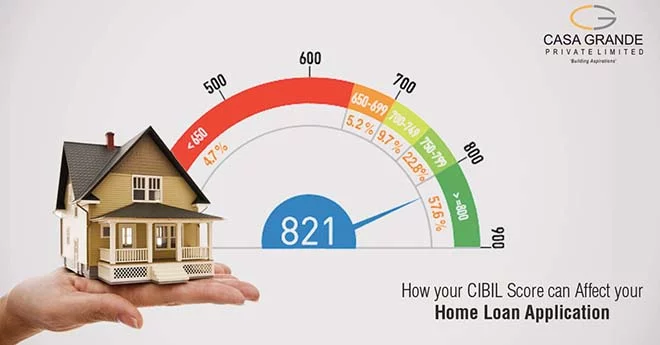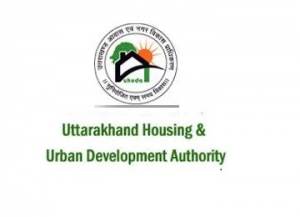Introduction: Why Does Your CIBIL Score Matter in the Home Loan Journey?
Buying a home is a dream for many, and for most Indians, this dream is brought to life through a home loan. However, even before you start comparing lenders and property listings, there’s one critical number that could determine whether your loan is approved or rejected—your CIBIL score.
Often underestimated, your credit score (most commonly referred to as the CIBIL score in India) plays a vital role in the home loan approval process. It not only determines your eligibility for a home loan but also influences the interest rate, loan tenure, and even the loan amount that the bank is willing to offer. So, if you are planning to buy a house, understanding how your CIBIL score affects home loan approval is not just important—it’s essential.
In this detailed guide, we will explain what the CIBIL score is, why it matters, and how it can impact every stage of your home loan journey. We will also provide tips to improve your credit score and insights into how lenders perceive your financial habits.
Also Read:- What To Do If Home Loan EMI Bounces in India in 2025?
What is a CIBIL Score and How is It Calculated?

The CIBIL score is a three-digit number ranging between 300 and 900, assigned by the Credit Information Bureau (India) Limited, based on your credit history. This includes your repayment behavior, outstanding debts, types of loans taken, credit utilization, and the number of loan applications made.
Higher the score, better your creditworthiness.
Key factors that influence your CIBIL score:
- Payment History (35%): Timely repayment of EMIs and credit card bills.
- Credit Exposure (30%): Total debt in comparison to your income.
- Credit Mix (10%): A healthy combination of secured and unsecured loans.
- New Credit Inquiries (10%): Frequent applications indicate credit hunger.
- Credit Duration (15%): How long you’ve had credit lines open.
Also Read:- Section 80EEA: Deduction for interest on Home Loan
What is the Ideal CIBIL Score Required for Home Loan Approval?

Banks and housing finance companies generally prefer applicants with a CIBIL score of 750 or above for faster and smoother home loan approval. However, scores above 800 can unlock even better terms such as lower interest rates, higher loan amounts, and quicker disbursal.
Scores between:
- 750 – 900: Excellent – High approval chances with best terms.
- 700 – 749: Good – Eligible, but may have slightly higher interest rates.
- 650 – 699: Average – Considered risky, loan may be approved with conditions.
- Below 650: Poor – High risk, approval unlikely unless supported by strong income proof or collateral.
How Does a Low CIBIL Score Impact Your Home Loan Application?

A low CIBIL score can drastically reduce your chances of getting a home loan. Lenders perceive low scores as a sign of credit risk, meaning you may default on repayments. Here’s how a poor score can hurt:
- Loan Rejection: Lenders may outright reject your application.
- Higher Interest Rates: If approved, the terms won’t be favorable.
- Lower Loan Amount: Limited eligibility based on risk calculation.
- Higher Processing Time: Manual verification adds delays.
- Requirement of a Co-Applicant or Guarantor: Banks may insist on additional support.
Can You Get a Home Loan with a Low CIBIL Score?

Yes, it’s possible—but challenging. Some NBFCs and housing finance companies might still offer loans to low-score applicants, but usually at much higher interest rates and shorter tenures. Alternatively, providing collateral, showing a strong income flow, or including a co-applicant with good credit might help.
Also Read:- Home Loan Subsidy 2024-25: Criteria, Benefits, Process & More
How Does a Good CIBIL Score Benefit You During Home Loan Approval?
A high credit score doesn’t just increase your chances of approval—it can actually save you lakhs of rupees over the tenure of the loan. Here’s how:
- Lower Interest Rate: Even a 0.5% reduction can significantly reduce EMI burden.
- Faster Approval: Most banks have automated checks for high-score applicants.
- Negotiation Power: You can negotiate better loan terms with the lender.
- Higher Loan Amount: Trust factor lets banks extend more credit.
- Longer Tenure Options: More flexibility in repayment planning.
How to Improve Your CIBIL Score for Home Loan Eligibility?
Improving your CIBIL score isn’t an overnight fix, but it is possible with consistent efforts. Here’s what you can do:
- Pay All Dues on Time: Never miss an EMI or credit card due date.
- Reduce Credit Card Utilization: Keep usage below 30% of your limit.
- Avoid Multiple Loan Applications: Every inquiry affects your score.
- Maintain a Healthy Credit Mix: Balance secured and unsecured loans.
- Check CIBIL Report Regularly: Spot and rectify errors promptly.
What Do Banks Check Along With Your CIBIL Score?

Your credit score is just one part of the puzzle. Lenders also evaluate:
- Income Level and Stability: Salaried or self-employed.
- Job Profile and Employer: MNCs or government employees are preferred.
- Existing Liabilities: Other EMIs or financial obligations.
- Age and Retirement Status: Younger applicants are more favorable.
- Down Payment Capacity: More down payment equals lesser risk for lender.
Also Read:- Reduce Your Home Loan Tenure – 5 Validated Tactics
How Frequently Should You Check Your CIBIL Score?

It’s wise to check your score at least once every three months, especially if you’re planning to apply for a loan in the near future. This will help you monitor improvements, rectify issues, and time your application strategically.
What Are Some Common Myths About CIBIL Score and Home Loans?

- Myth: Checking your own CIBIL score lowers it.
-
- Fact: Only hard inquiries by lenders affect the score.
- Myth: Closing old accounts improves credit score.
- Fact: Length of credit history adds to your score—keep old accounts.
- Myth: Zero debt is a good credit score strategy.
- Fact: No credit history means no score or an insufficient one.
Does Pre-Approval Guarantee Home Loan Disbursal?
No, a pre-approval only indicates that you meet basic eligibility criteria based on your current CIBIL score and income. Final disbursal happens only after detailed scrutiny of documents, property legalities, and updated credit score at the time of disbursement.
Also Read:- NRI Home Loans Documents Checklist: Everything You Need to Know
Conclusion: Your CIBIL Score is Your Financial Passport
To sum it up, your CIBIL score plays a pivotal role in your home loan approval journey. From influencing the loan amount to deciding the interest rate and approval time, it acts as a critical filter that lenders use to evaluate risk. A healthy credit profile not only ensures you get the loan, but that you get it on the best terms possible.
So, whether you’re a first-time buyer or a seasoned investor, make your credit score a priority. If you’re planning to buy a home soon, take the time now to strengthen your score, it might be the smartest financial move you make this year.
At Housiey, we aim to make your home buying experience transparent, easy, and stress-free by helping you connect directly with top builders, no broker interference, no hassles. If you’re also exploring affordable housing options, don’t miss our detailed blog on the CIDCO Housing Scheme, a must-read for budget-conscious buyers.
FAQs
Introduction: Why Does Your CIBIL Score Matter in the Home Loan Journey?
Buying a home is a dream for many, and for most Indians, this dream is brought to life through a home loan. However, even before you start comparing lenders and property listings, there’s one critical number that could determine whether your loan is approved or rejected—your CIBIL score.
Often underestimated, your credit score (most commonly referred to as the CIBIL score in India) plays a vital role in the home loan approval process. It not only determines your eligibility for a home loan but also influences the interest rate, loan tenure, and even the loan amount that the bank is willing to offer. So, if you are planning to buy a house, understanding how your CIBIL score affects home loan approval is not just important—it’s essential.
In this detailed guide, we will explain what the CIBIL score is, why it matters, and how it can impact every stage of your home loan journey. We will also provide tips to improve your credit score and insights into how lenders perceive your financial habits.
Also Read:- What To Do If Home Loan EMI Bounces in India in 2025?
What is a CIBIL Score and How is It Calculated?

The CIBIL score is a three-digit number ranging between 300 and 900, assigned by the Credit Information Bureau (India) Limited, based on your credit history. This includes your repayment behavior, outstanding debts, types of loans taken, credit utilization, and the number of loan applications made.
Higher the score, better your creditworthiness.
Key factors that influence your CIBIL score:
- Payment History (35%): Timely repayment of EMIs and credit card bills.
- Credit Exposure (30%): Total debt in comparison to your income.
- Credit Mix (10%): A healthy combination of secured and unsecured loans.
- New Credit Inquiries (10%): Frequent applications indicate credit hunger.
- Credit Duration (15%): How long you’ve had credit lines open.
Also Read:- Section 80EEA: Deduction for interest on Home Loan
What is the Ideal CIBIL Score Required for Home Loan Approval?

Banks and housing finance companies generally prefer applicants with a CIBIL score of 750 or above for faster and smoother home loan approval. However, scores above 800 can unlock even better terms such as lower interest rates, higher loan amounts, and quicker disbursal.
Scores between:
- 750 – 900: Excellent – High approval chances with best terms.
- 700 – 749: Good – Eligible, but may have slightly higher interest rates.
- 650 – 699: Average – Considered risky, loan may be approved with conditions.
- Below 650: Poor – High risk, approval unlikely unless supported by strong income proof or collateral.
How Does a Low CIBIL Score Impact Your Home Loan Application?

A low CIBIL score can drastically reduce your chances of getting a home loan. Lenders perceive low scores as a sign of credit risk, meaning you may default on repayments. Here’s how a poor score can hurt:
- Loan Rejection: Lenders may outright reject your application.
- Higher Interest Rates: If approved, the terms won’t be favorable.
- Lower Loan Amount: Limited eligibility based on risk calculation.
- Higher Processing Time: Manual verification adds delays.
- Requirement of a Co-Applicant or Guarantor: Banks may insist on additional support.
Can You Get a Home Loan with a Low CIBIL Score?

Yes, it’s possible—but challenging. Some NBFCs and housing finance companies might still offer loans to low-score applicants, but usually at much higher interest rates and shorter tenures. Alternatively, providing collateral, showing a strong income flow, or including a co-applicant with good credit might help.
Also Read:- Home Loan Subsidy 2024-25: Criteria, Benefits, Process & More
How Does a Good CIBIL Score Benefit You During Home Loan Approval?
A high credit score doesn’t just increase your chances of approval—it can actually save you lakhs of rupees over the tenure of the loan. Here’s how:
- Lower Interest Rate: Even a 0.5% reduction can significantly reduce EMI burden.
- Faster Approval: Most banks have automated checks for high-score applicants.
- Negotiation Power: You can negotiate better loan terms with the lender.
- Higher Loan Amount: Trust factor lets banks extend more credit.
- Longer Tenure Options: More flexibility in repayment planning.
How to Improve Your CIBIL Score for Home Loan Eligibility?
Improving your CIBIL score isn’t an overnight fix, but it is possible with consistent efforts. Here’s what you can do:
- Pay All Dues on Time: Never miss an EMI or credit card due date.
- Reduce Credit Card Utilization: Keep usage below 30% of your limit.
- Avoid Multiple Loan Applications: Every inquiry affects your score.
- Maintain a Healthy Credit Mix: Balance secured and unsecured loans.
- Check CIBIL Report Regularly: Spot and rectify errors promptly.
What Do Banks Check Along With Your CIBIL Score?

Your credit score is just one part of the puzzle. Lenders also evaluate:
- Income Level and Stability: Salaried or self-employed.
- Job Profile and Employer: MNCs or government employees are preferred.
- Existing Liabilities: Other EMIs or financial obligations.
- Age and Retirement Status: Younger applicants are more favorable.
- Down Payment Capacity: More down payment equals lesser risk for lender.
Also Read:- Reduce Your Home Loan Tenure – 5 Validated Tactics
How Frequently Should You Check Your CIBIL Score?

It’s wise to check your score at least once every three months, especially if you’re planning to apply for a loan in the near future. This will help you monitor improvements, rectify issues, and time your application strategically.
What Are Some Common Myths About CIBIL Score and Home Loans?

- Myth: Checking your own CIBIL score lowers it.
-
- Fact: Only hard inquiries by lenders affect the score.
- Myth: Closing old accounts improves credit score.
- Fact: Length of credit history adds to your score—keep old accounts.
- Myth: Zero debt is a good credit score strategy.
- Fact: No credit history means no score or an insufficient one.
Does Pre-Approval Guarantee Home Loan Disbursal?
No, a pre-approval only indicates that you meet basic eligibility criteria based on your current CIBIL score and income. Final disbursal happens only after detailed scrutiny of documents, property legalities, and updated credit score at the time of disbursement.
Also Read:- NRI Home Loans Documents Checklist: Everything You Need to Know
Conclusion: Your CIBIL Score is Your Financial Passport
To sum it up, your CIBIL score plays a pivotal role in your home loan approval journey. From influencing the loan amount to deciding the interest rate and approval time, it acts as a critical filter that lenders use to evaluate risk. A healthy credit profile not only ensures you get the loan, but that you get it on the best terms possible.
So, whether you’re a first-time buyer or a seasoned investor, make your credit score a priority. If you’re planning to buy a home soon, take the time now to strengthen your score, it might be the smartest financial move you make this year.
At Housiey, we aim to make your home buying experience transparent, easy, and stress-free by helping you connect directly with top builders, no broker interference, no hassles. If you’re also exploring affordable housing options, don’t miss our detailed blog on the CIDCO Housing Scheme, a must-read for budget-conscious buyers.
FAQs













